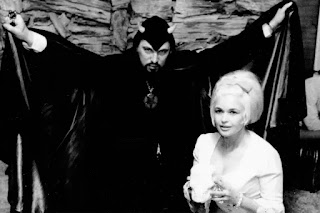Why I Love Communists

The Church of Satan is a bit of a paradox - on the one hand, it stressed extreme individualism; on the other, it was a community, an institution, a church. The founder of the Church of Satan, Anton LaVey, was always going on about how he was seeking "superior" people - an "elite" - a community of the most extraordinary and successful members of a generation. And yet contemporary Satanists tend not to be members of any elite, but rather losers, resentful misfits, nerds, and incels. Ah, well. Back to the drawing board. If I were a Satanist - I'm not, but if I were - and I were seeking an elite of superior, successful people, I wouldn't look for them among the followers of Ayn Rand, who are the most resentful, nerdliest nerdlings of them all, but rather among the communists. What makes communism such a hotbed of elites? First and foremost, I love communists for their clothing. Communists are, on average, far better dressed than other p...